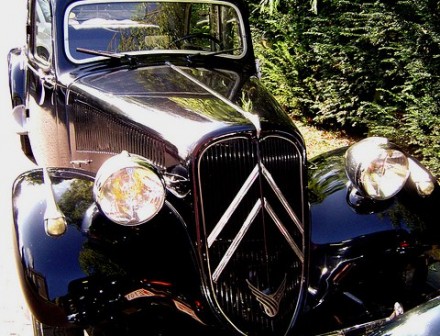Blast From The Past: Are Modern Cars Too Complex?
The current problem of Toyota could be the expression of a wider short coming of technological advancements in the automotive industry. Car makers went within a few decades, starting in the early 1970’s, from putting the accent on long term durability to favor performance, some mechanical innovations, but mostly started making vehicles which were not designed to last in term of both the engine and the body of the vehicle. It seems that the goal had shifted from making quality product able to last 20 or 30 years to make automobiles which would be only viable for about 10 years.
At the birth of the extraordinary adventure of the automobile culture, right before the turn of the XX Century, the car pioneers both in America and Europe defined the standards of the industry. After proceeding by trial and error for a while, they finally had locked an engineering process which would turn out to be extremely successful for more than 7 decades.
One of the pioneers, Henry Ford, used to say about his ground breaking Model T that buyers could get it in “Any color- as long as it was black”. Henry Ford cared deeply about the quality of his technological marvels. Henry Ford said once that “A business that makes nothing but money is poor business”. This quote is even more telling than the first one in expressing Ford sense of great pride for his engineering tour de force.
The same type of engineering philosophy was at play in Europe for both Mercedes-Benz in Germany and Citroen( see photo of the revolutionary 1930s Traction Avant) in France. In the era of the car pioneers, car makers took pride in making automobiles which sustain the wear and tear of time as long as possible, while nowadays it seems that cars have an expiration date by design.
In the early days of the industry cars were luxury items, not accessible to everyone. A great deal of care was put in their manufacturing. The end of World War II marked a shift in the industry, but even in the 1950’s or 1960’s when mass production truly took off with a vengeance, the quality standards for material used and durability were still very much at the center of car makers’ preoccupation. Cars were cheaper, but still perceived as a very long term purchase for consumers.
The seismic change in the car industry happened in the mid to late 1980’s with the introduction of sophisticated computer components to regulate critical mechanical aspects of the vehicles. In 2010, all vehicles manufactured have countless and obviously fragile computer chips. May be Henry Ford and the other pioneers were up to something when they favored durability over quick profit and sometimes contestable technological progress. Back then, cars were not only “bullet proof” because of the material used, but they were also arguably more beautiful, and care makers certainly took more pride in their products.
Note: The top photograph illustrating this article (color infra-red) is a picture of a 1973 Chevy pickup truck . This truck is a perfect example of the “indestructible” type of vehicles the American car industry used to produce. I also drive a 1983 Mercedes-Benz 300 Turbo Diesel, with no electronic whatsoever, it is still running strong with its original engine and an odometer clocking at more than 250,000 miles.
Editor’s Note: Please follow The News Junkie Post on Twitter.
Related Articles















4 Responses to Blast From The Past: Are Modern Cars Too Complex?
You must be logged in to post a comment Login